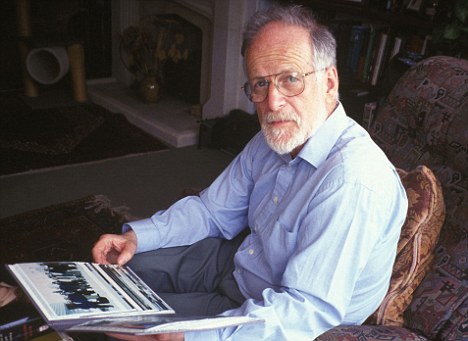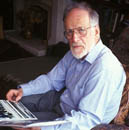Case for inquest into David Kelly death 'unanswerable'
BBC
Wed December 29, 2010
Area: Oxfordshire
Campaigners for a full inquest into the death of government weapons inspector David Kelly say they have presented an "unanswerable" case.
A lawyer for the group behind the demand said they hoped Attorney General Dominic Grieve would resist political pressure to deny one.
Mr Grieve is expected to announce soon whether he will comply with a request to ask the High Court for an inquest.
The Hutton inquiry found in 2004 that Dr Kelly had committed suicide.
And the post-mortem report into his 2003 death, which the government released in October, suggested he had died as a result of a "self-inflicted injury".
It blamed blood loss after cuts to his left wrist, aided by a painkiller overdose and "silent" heart disease.
Dr Kelly's body was found in woods close to his Oxfordshire home, after it was revealed he had provided the information for a BBC News story casting doubt on the government's claim that Iraq had weapons of mass destruction capable of being fired within 45 minutes.
Instead of holding a coroner's inquest, the then Prime Minister, Tony Blair, asked Lord Hutton to conduct an investigation, which found Dr Kelly had died from blood loss after slashing his wrist with a knife.
'Irregularities'
But a group of five doctors is calling for the case to be reopened, arguing that the suicide verdict was unsafe.
Mr Grieve has been considering the doctors' arguments - set out in a 33-page petition known in legal language as a "memorial" - since September and is expected to announce early in 2011 whether he will comply with their request for him to ask the High Court to order an inquest.
One of the doctors, Michael Powers, said the Hutton inquiry had not been an adequate substitute for the "full, frank and fearless" investigation required by coroners' guidelines.
Dr Powers said: "For several months now the attorney general has been considering the 'memorial' of the doctors. This legal document sets out details of the insufficiency and irregularities of Lord Hutton's informal inquiry which, in our opinion, make the argument for a proper inquest unanswerable.
"Although the senior government law officer, it is hoped and expected that Dominic Grieve QC MP will put aside political considerations in reaching his decision on the law.
"The circumstances of Dr Kelly's death merit a detailed examination of all the evidence in a coroner's court. Many questions have been asked which demand proper answers. It is in the public interest that confidence is maintained in the due process of law."
The doctors insist the publication of the post-mortem report has not ended key questions, such as:
* how Dr Kelly obtained a packet of coproxamol painkillers
* why his blood and stomach contained only a non-toxic dose of the drug
* why he was not spotted by a police helicopter with thermal imaging cameras which flew over the wood where his body was later found
* why no fingerprints were found on the knife apparently used to slit his wrist
* whether he in fact intended to kill himself
The doctors also highlight the dual role of Labour's Lord Falconer, who ordered the inquiry as Constitutional Affairs Secretary and then declared himself satisfied with its findings in his other government job as Lord Chancellor.
The Hutton inquiry was "manifestly relatively powerless and lacking investigative bite when compared to its statutory equivalent or coronial proceedings," argues the memorial document.
But, following the publication of the post-mortem report, Lord Hutton said there had never been any secrecy about it, as lawyers had had access to it during his inquiry.
A spokesman for the Kelly family said he hoped that the release of the information would end speculation about the scientist's death.





 Share your thoughts in the Forum
Share your thoughts in the Forum
